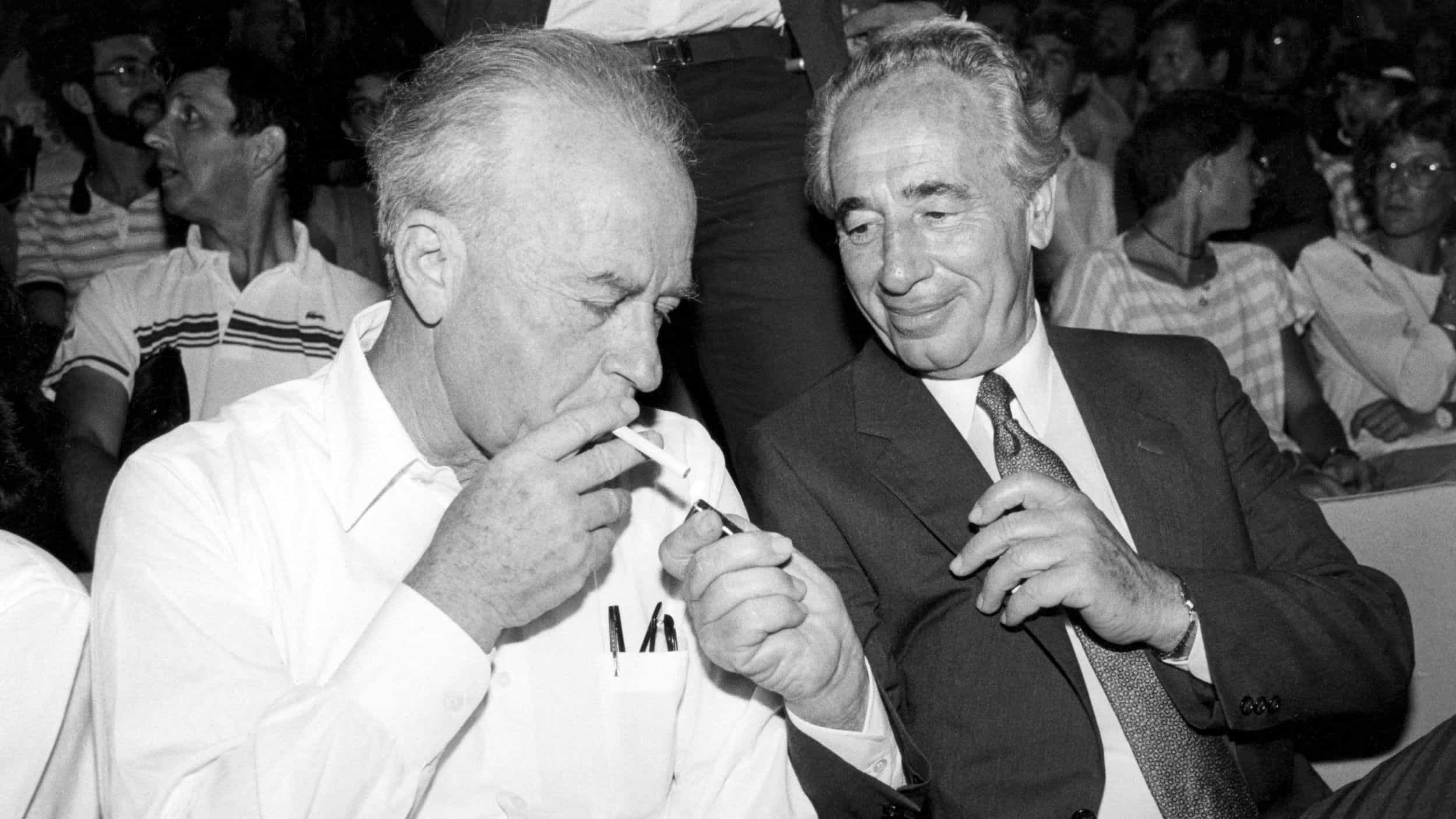Part 7
Undermining democracy, deepening sociopolitical cleavages
However dramatic, radicalisation of the Israeli Arabs has not been Oslo’s worst domestic calamity. Far more detrimental has been the destabilisation of the country’s political system and the deepening of its sociopolitical cleavages to the point of endangering Israel’s thriving democracy, if not its very existence. In the 30 years since the signing of the DOP, only two of the ruling 13 governments completed their four-year tenure with one term ended by the unprecedented assassination of the incumbent prime minister. Meanwhile, parliament’s average lifespan dropped from 3.6 years to three years with Israel going through five electoral campaigns in the span of three-and-a-half years (April 2019–November 2022) that have left the latest government vying with orchestrated civil disobedience of unprecedented proportions that threatens to tear Israeli Jewish society apart.
Just as Labour’s failure to anticipate the October 1973 war had led to its loss of power for the first time since Israel’s establishment, so the Oslo disaster set the party on an intractable process of decline that brought it to the verge of political extinction. If in 1992 Labour enjoyed a comfortable majority of 44 of the Knesset’s 120 seats to Likud’s 32, by November 2022 it had plunged to just four seats (to Likud’s 32) – the threshold for entering the Knesset – with repeated post-election polls predicting its failure to cross this threshold in future elections.
To make matters worse, as the ‘peace process’ lost public traction and parliamentary support the Rabin and Barak governments reverted to non-democratic means in a desperate bid to keep it afloat. If Oslo I was approved on 21 September 1993 by a Knesset majority of 61–50 with eight abstentions, Oslo II was approved on 5 October 1995 by a 61–59 majority, with the two deciding votes siphoned from another party by an unabashed act of political bribery – hardly a democratic move given the centrality of the issue to Israel’s national security. Similarly, Barak’s far-reaching concessions in Camp David, and all the more so in Taba – where according to Palestinian sources he accepted the ‘right of return’ (albeit not the actual return of
all refugees to Israel itself)
Footnote33 – were made with no parliamentary majority or public support.
No less detrimental to Israel’s democracy has been the unprecedented proliferation of ‘atmosphere parties’ triggered by the Oslo process, as the cognitive dissonance between realisation of Palestinian perfidy and the lingering yearning for peace drove many Israelis to cling to the latest celebrity hope-peddler to emerge on the political scene. Thus we have the nascent Third Way party winning four seats in 1996, only to evaporate into thin air three years later. It was then followed by the similarly disposed Center Party, which won six seats in 1999 before disappearing from the political scene in the 2003 elections, when another one-term party – One People – came into brief and unremarkable existence.
Shinui (Change) party, an offshoot of the one-term Democratic Movement for Change (DASH) that played a key role in Likud’s 1977 ascendance, managed to win six and 15 seats in the 1999 and 2003 elections, respectively, before vanishing altogether in 2006. Ariel Sharon’s
Kadima (Forward) did much better by winning the premiership in 2006, but it, too, was gone by the 2013 elections. So was
Hatnua (The Movement), formed by Likud-defector-turned-Kadima-refugee Tzipi Livni, which was amalgamated into Labour in the 2015 elections, and
Kulanu (All of US), founded by Likud defector Moshe Kahlon, which entered the political fray in 2015 (10 seats), only to disappear in the September 2019 elections.
Yesh Atid (There is a Future), formed and led by TV personality Yair Lapid, proved more resilient. Having made an impressive debut in the 2013 elections (19 seats), it dropped to 11 seats in 2015 before merging for three successive elections (2019–20) with the newly-established ‘Strength for Israel’ headed by former IDF chief-of-Staff Benny Gantz, in an effort to unseat Likud. This failed, and in the 2021 elections the merger broke down with Yesh Atid winning 17 seats (second only to Likud’s 30) and Gantz, who retained the stillborn merger’s Blue & White name for his splinter party, contenting himself with eight seats. Fortunately for the two, Naphtalie Bennett, founding leader of the nascent
Yemina (Rightwards), which failed to enter Knesset in April 2019 and won seven seats in each the September 2019 and 2021 elections, reneged on his longstanding public pledges and agreed to form a government with a string of leftwing parties (and the Islamist Raám party) in return for becoming prime minister, to be replaced mid-term by Lapid. And while this power usurpation was legally possible as no legislator had ever envisaged such an improbable scenario, Bennet’s appointment set a dangerous anti-democratic precedent whereby leaders with no public support – his party held a fifth of Likud’s seats and a third of Yesh Atid’s seats – could blackmail their way to the prime minister’s office. Small wonder that two of Bennet’s coalition partners, Labour leader Meirav Michaeli and
Israel Beitenu(Israel is our home) leader Avigdor Lieberman, quickly pronounced themselves prime ministerial material despite their parties winning a mere seven seats each.
Even Barak, whose brief disastrous premiership ended in the worst electoral defeat in Israel’s history, had no qualms about pronouncing himself two decades later the most qualified person for the job – shortly after failing to re-enter Knesset yet again. ‘If, Heaven forbid, Bibi [Netanyahu] were to disappear one noon next week’, he told a group of militant activists seeking Netanyahu’s overthrow by extra-parliamentary means, ‘and there is the possibility of deterioration with Hezbollah or the Iranians, or [there is another] crisis, and the social and economic crisis continues, and there is a need for decisions regarding Iran, annexation, etc., then objectively I am more suitable and better prepared than anyone in Israel to seize the helm’.
Footnote34
These megalomaniac pretences are emblematic of an attendant Oslo-induced anti-democratic debacle: the complete personalisation of Israeli politics and the substitution of self-serving opportunism for ideological and moral principles. For while Israel’s diverse political system has seen from the outset the rise and fall of sectorial parties (e.g. WIZO, Yemenite Association, Sephardim and Edot Mizrah, Arab, religious, ultraorthodox), the Oslo-era ‘atmosphere parties’ are little more than tools for servicing their founders’ personal interests and ambitions under the false pretence of serving the general good. Not surprisingly, these parties have been run in a dictatorial fashion with their leaders calling all the shots and making all decisions, great and small – from selection of Knesset candidates (and banishment of ‘disobedient’ MKs) to political platforms and manoeuvres – hardly a shining example of a democratic practice.
No less detrimental to Israeli democracy has been the total loss of connection between ideological precepts and their actual implementation attending the Oslo process. Of course, failure to fulfill elections promises is a universal phenomenon that is hardly exclusive to Israeli politics. Yet such has been the regularisation of this malpractice in the Oslo era, especially with regard to the most crucial national issues, that it has emptied the notion of democratic elections of any substance as voters have no clue what policies they are going to see. Thus we have Rabin agreeing to surrender the Golan Heights to Assad in flagrant violation of his longstanding position and electoral pledges to the contrary and eschewing his party’s perennial refusal to negotiate with the PLO, despite the latter’s continued commitment to Israel’s destruction. Similarly, no sooner had Sharon publicly vowed that the Gaza Jewish communities were an integral part of Israel than he changed tack and decided to uproot them all. Confronted with widespread opposition in Likud to the move, Sharon had no qualms of breaking the ruling party and forming his own Kadima party. So did Barak, who in January 2011 split from Labour together with four other MKs and formed his own
Atzmaut (Independence) party so he could retain the defence portfolio in Netanyahu’s government, from which Labour decided to secede.
But then, having served for full four years as the most powerful member of the Netanyahu cabinet (after the PM), Barak waged a relentless defamation campaign against his former superior, including the cofounding of another short-lived ‘atmosphere party’ (in September 2019 elections) dubbed The Democratic Camp. Having failed to re-enter Knesset, he escalated his anti-Netanyahu rhetoric calling for nationwide civil obedience to prevent the prime minister’s supposed attempt to set up a fully-fledged dictatorship by underhand means, be they anti-Corona emergency measures or reformation of Israel’s legal system. He was joined in this campaign by Yaalon, who left Likud to establish his own stillborn party after being asked by Netanyahu to vacate the defence portfolio (which he had held for three years) so as to allow Lieberman’s Israel Beitenu to join the ruling coalition.
Nowhere was the substitution of naked opportunism for ideological precepts and moral values more starkly illustrated than by the composition of the Bennett-Lapid ruling coalition. Not only did this odd ensemble of bedfellows have nothing in common beyond the burning desire to unseat the long-reigning Netanyahu after repeatedly failing to do so at the ballot box, but it was riven by longstanding animosities and loathing. For Bennett was not the only one to have sold his lifetime professed principles and ideals for a coveted post. Lieberman, for one, who for decades had been portrayed by the Left and the mainstream media as the archetypical ‘fascist’, and who had closely collaborated with the ultra-Orthodox parties in numerous national and local elections campaigns, was warmly embraced by his past detractors once he crossed the Rubicon and refused to join Netanyahu’s government in April 2019 – an act that set in train five electoral rounds in which he reverted to vile anti-religious and anti-Netanyahu attacks. The same applied, to a lesser extent, to Gideon Saar, who left Likud to form his own
Tikva Hadasha (New Hope) party after his failed bid for Likud leadership had made his relations with Netanyahu untenable.
And let’s not forget Sharon, who was instantaneously transformed from a murderous ogre into an affable grandfatherly figure (with a criminal investigation against him on serious bribery charges swiftly closed) after announcing his decision to uproot the Gaza communities, or the long string of Likud ‘princes’ (notably Olmert, Livni, Benny Begin, Dan Meridor, Limor Livnat, Roni Milo, and Rubi Rivlin) who had reached top national spots on their parents’ shoulders only to become Likud’s sharpest detractors with the waning of their personal fortunes – to the warm embrace of the mainstream media.
Footnote35
Yet these opportunistic acts pale in comparison with Bennett’s abrupt U-turn that transformed him overnight in the eyes of the mainstream media (and would-be coalition partners) from a fascistic extremist into democracy’s latest saviour. In a series of TV and radio appearances on 21 March 2021 – two days before the elections – he repeatedly vowed that ‘under no circumstances shall I ever lend my hand to the formation of a government under Lapid, with or without rotation, because of the simple fact that he is a man of the Left and I don’t act against my principles’. Reassuring voters that ‘a vote for Yemina is an insurance policy for a right-wing government since I will never sell my principles for any job’, he went as far as to sign in front of the camera a self-drafted document reiterating the above pledge about Lapid and challenging Netanyahu to promise to not establish a government with Raám.
Footnote36





